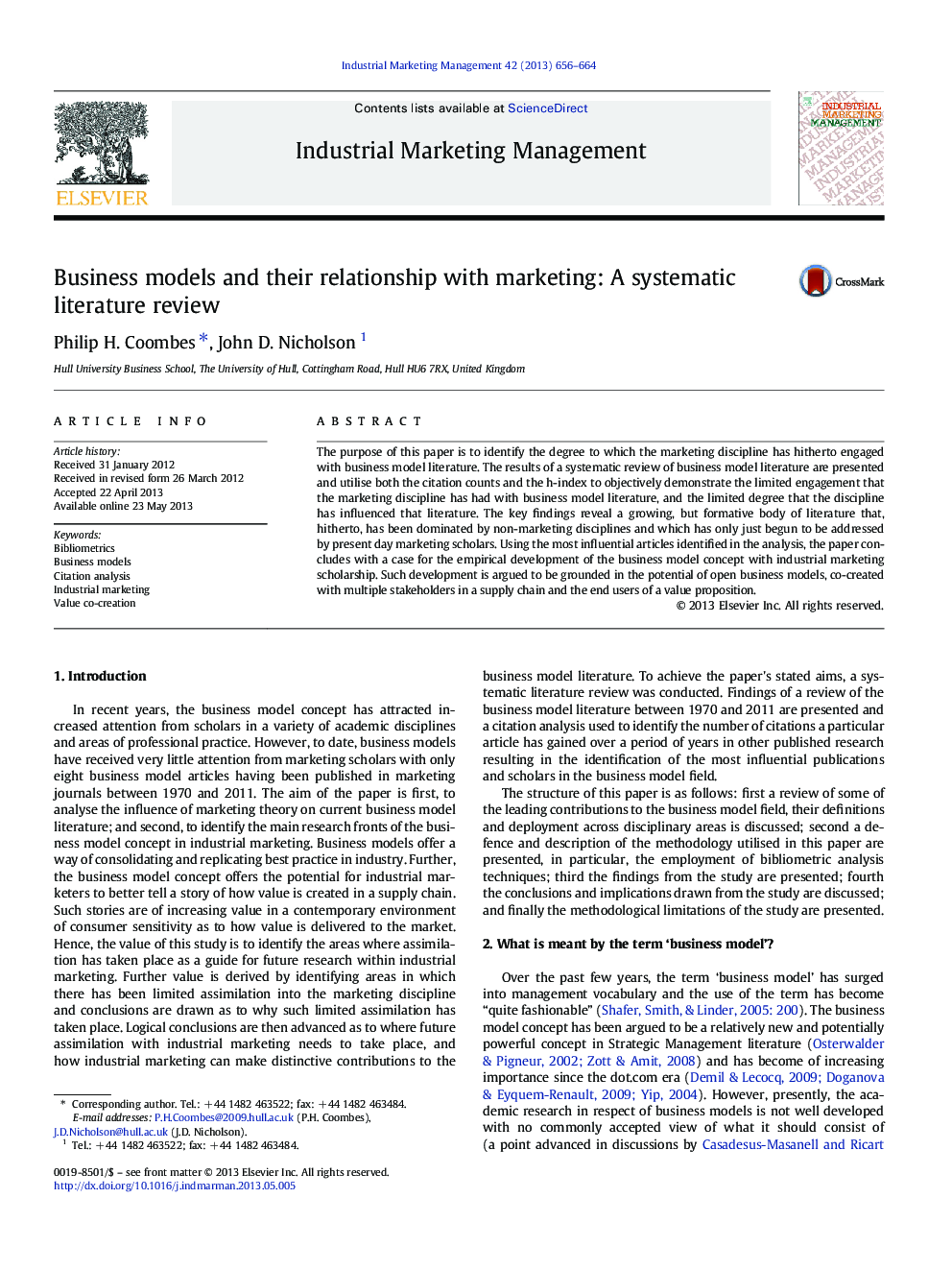| کد مقاله | کد نشریه | سال انتشار | مقاله انگلیسی | نسخه تمام متن |
|---|---|---|---|---|
| 1027824 | 942265 | 2013 | 9 صفحه PDF | دانلود رایگان |
چکیده
کلمات کلیدی
۱- مقدمه
2. «مدل کسبوکار» به چه معناست؟
جدول 1. گزیدهای از تعاریف مدلهای کسبوکار در ادبیات
3. مدل کسبوکار در پژوهشهای بازاریابی
4. رویکردهای علم سنجی
4-1- رویکردهای ارزیابی یک بدنۀ ادبیاتی
4-2- تحلیل استنادی
جدول 2. خلاصهای از مقالات منتشر شده در مجلات بازاریابی* دربارۀ مدل کسبوکار بین سالهای 1970 تا 2011
5. روششناسی
جدول 3. 25مجلّۀ نخستی که مقالات پیرامون مدلهای کسبوکار را بین سالهای 1970 تا 2011 منتشر کردهاند.
5-1-جمعآوری اطلاعات
5-2-مجموعۀ دادهها
6. یافتهها
شکل 1. توزیع مقالات درون رشتهای منتشرشده با موضوع مدل کسبوکار بین سالهای 1970 تا 2011
جدول 4. مجموعه دادهها
جدول 5. منابع کلیدی
جدول 6. رفتار استنادی
جدول 7. 25 مجلّۀ برتر از لحاظ ضریب تأثیر و بازده
7. نتایج و کاربردها
8- محدودیّتها
• Business models have to date unjustifiably received limited attention in industrial marketing scholarship.
• Future synthesis between the value co-creation and business model literature is called for.
• The paper proposes that the focus for such synthesis may lie in the concept of open business models.
• There is potential for industrial marketers to make contributions to the interdisciplinary study of business models.
The purpose of this paper is to identify the degree to which the marketing discipline has hitherto engaged with business model literature. The results of a systematic review of business model literature are presented and utilise both the citation counts and the h-index to objectively demonstrate the limited engagement that the marketing discipline has had with business model literature, and the limited degree that the discipline has influenced that literature. The key findings reveal a growing, but formative body of literature that, hitherto, has been dominated by non-marketing disciplines and which has only just begun to be addressed by present day marketing scholars. Using the most influential articles identified in the analysis, the paper concludes with a case for the empirical development of the business model concept with industrial marketing scholarship. Such development is argued to be grounded in the potential of open business models, co-created with multiple stakeholders in a supply chain and the end users of a value proposition.
Journal: Industrial Marketing Management - Volume 42, Issue 5, July 2013, Pages 656–664
